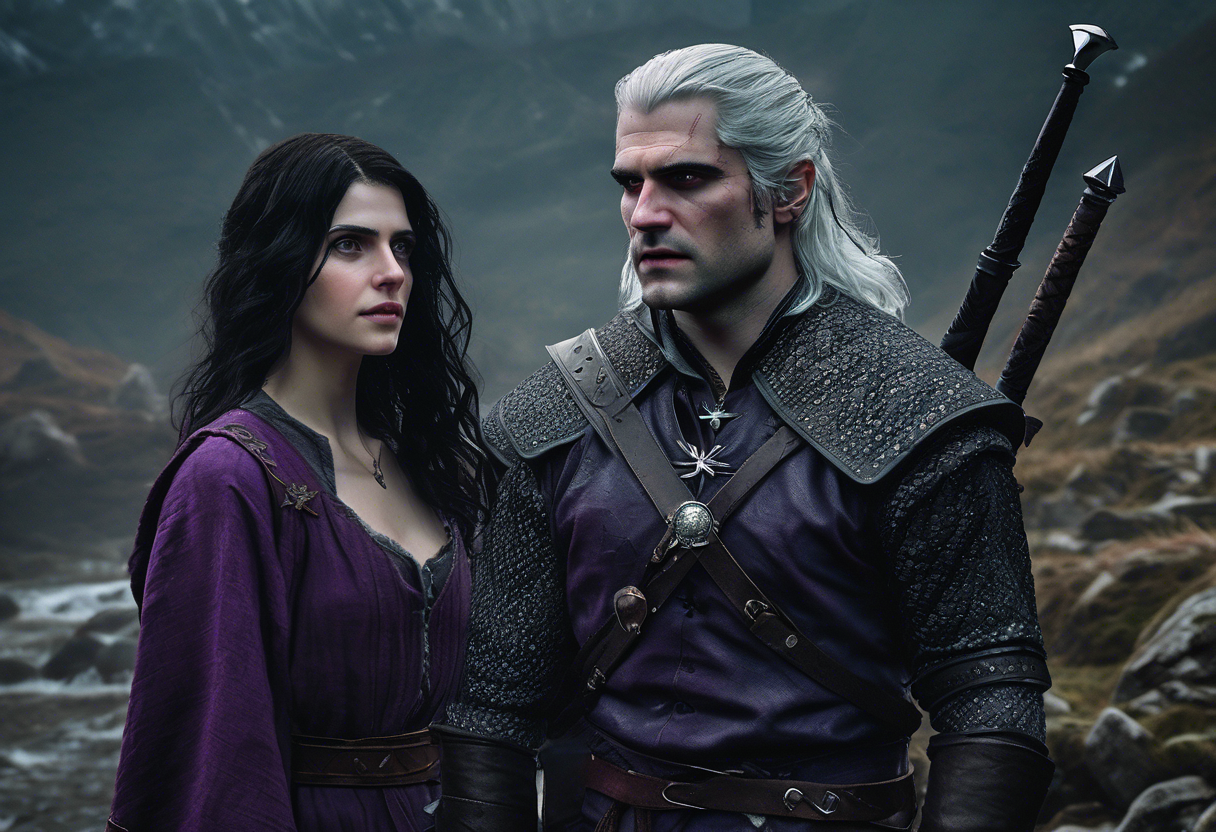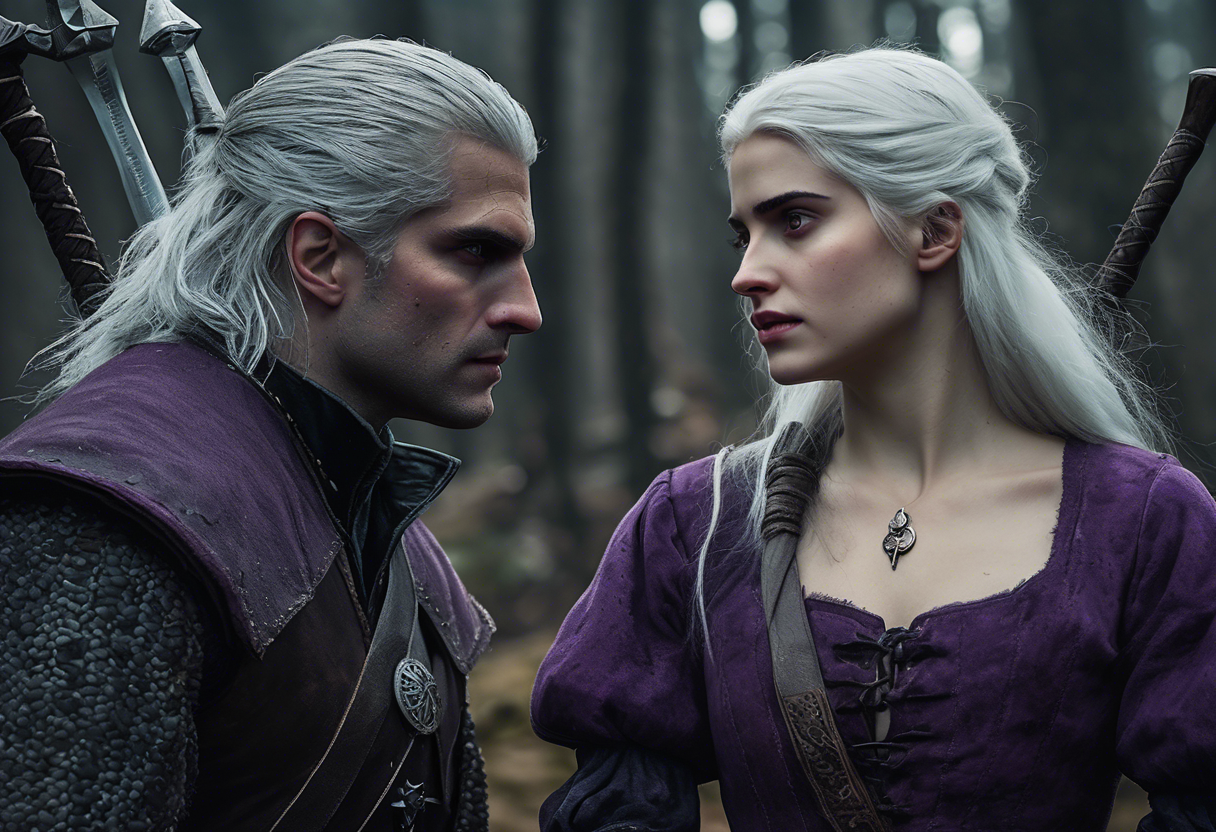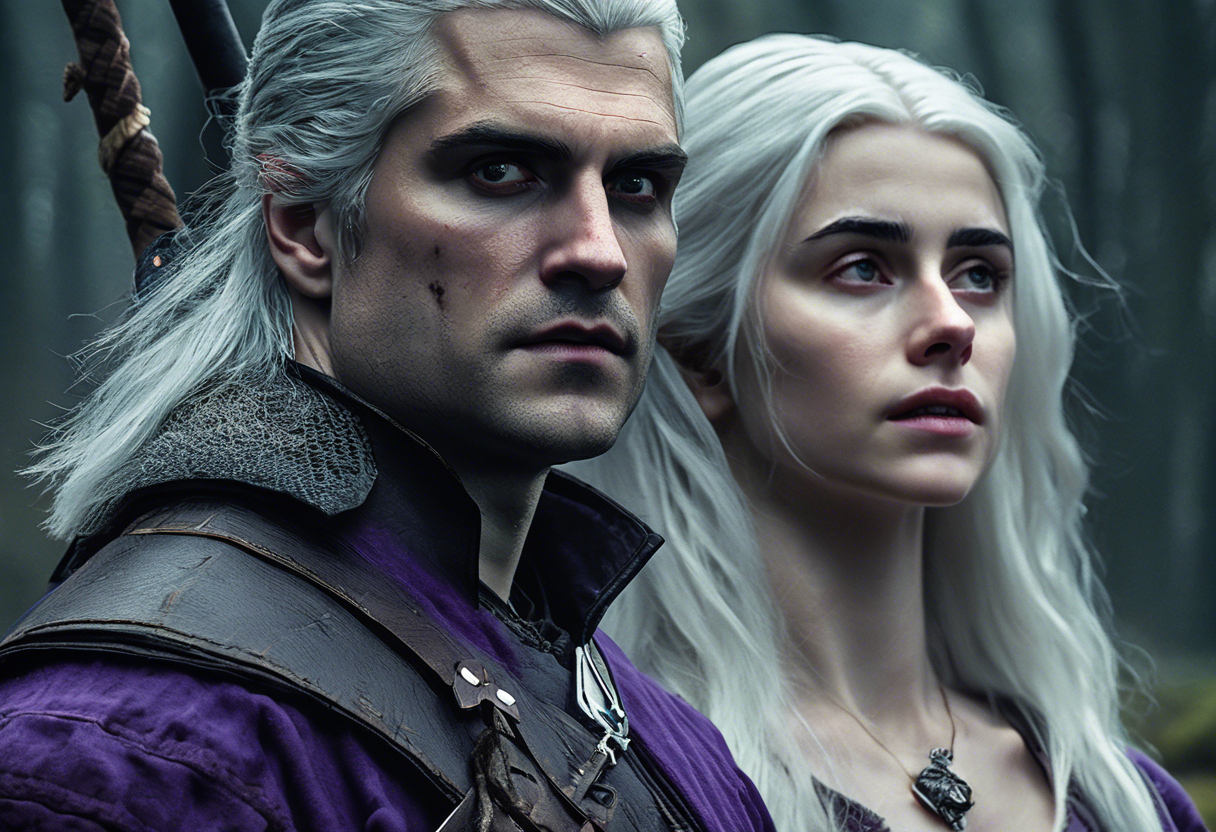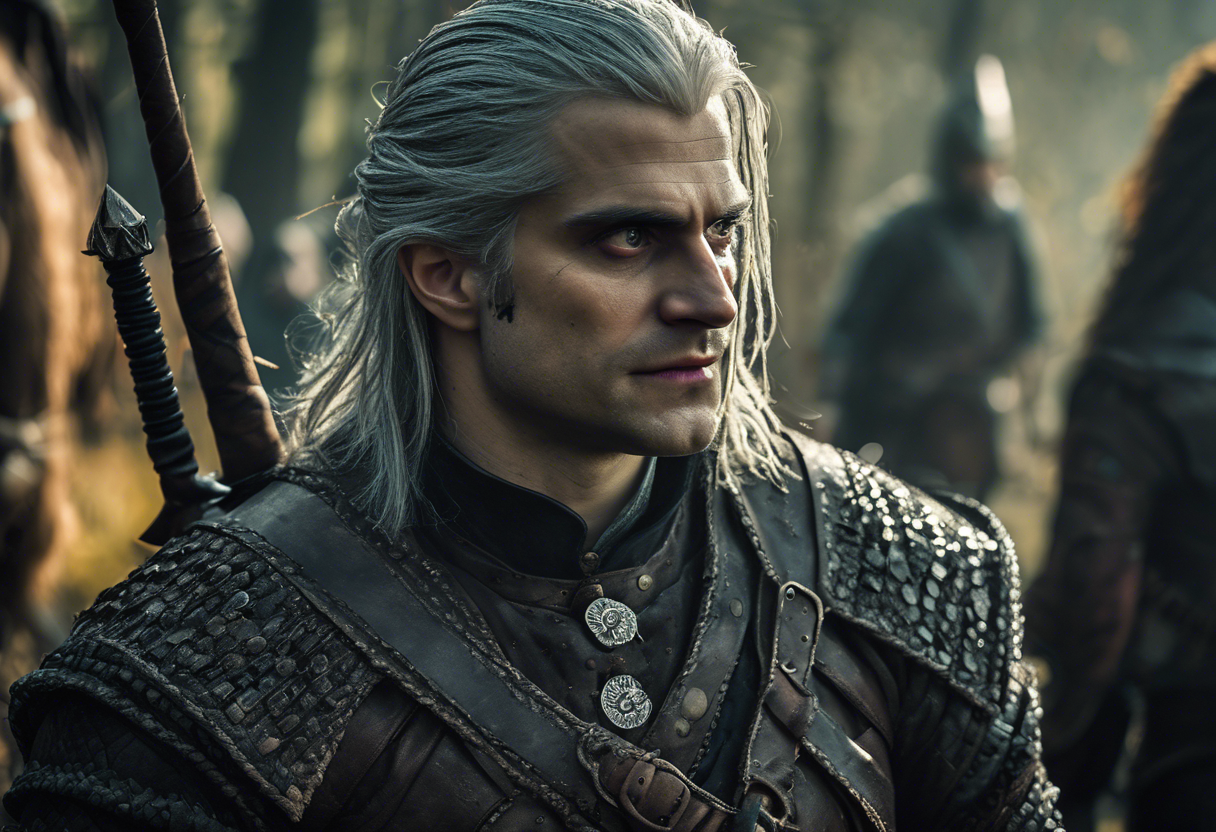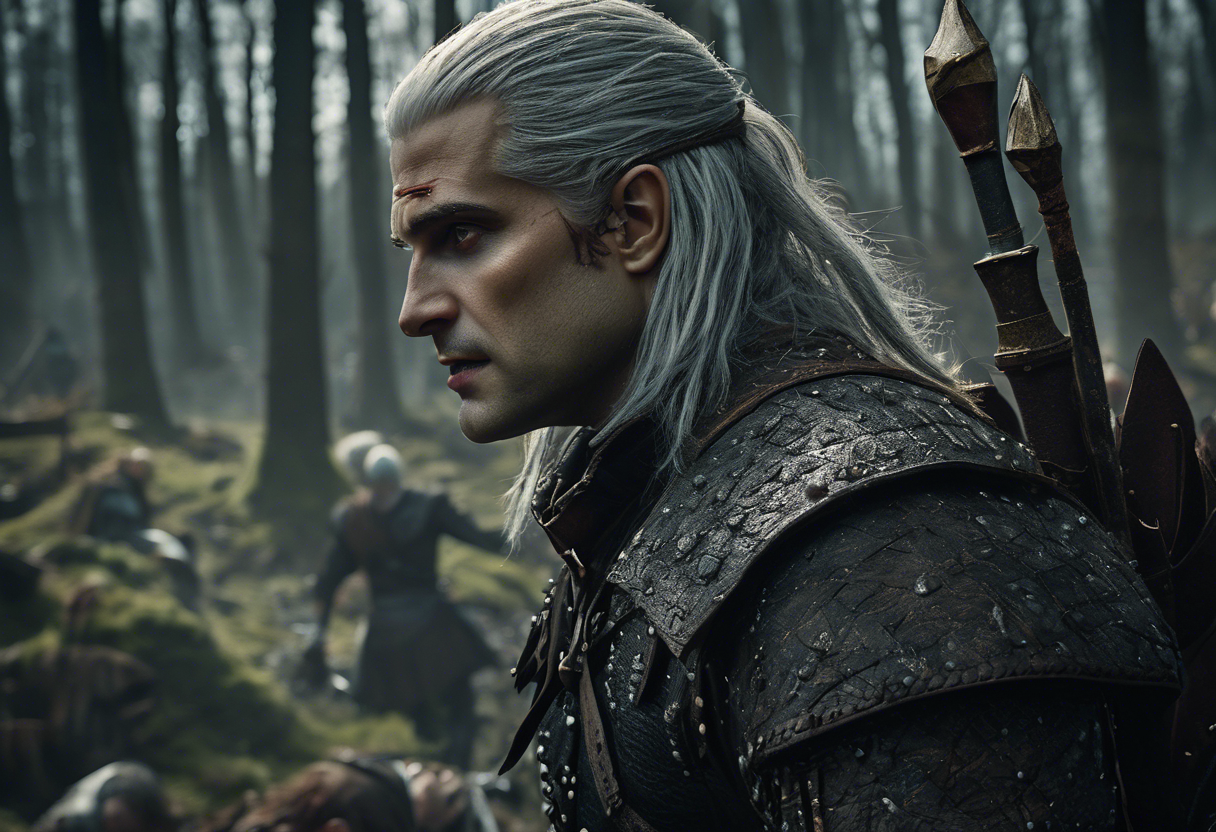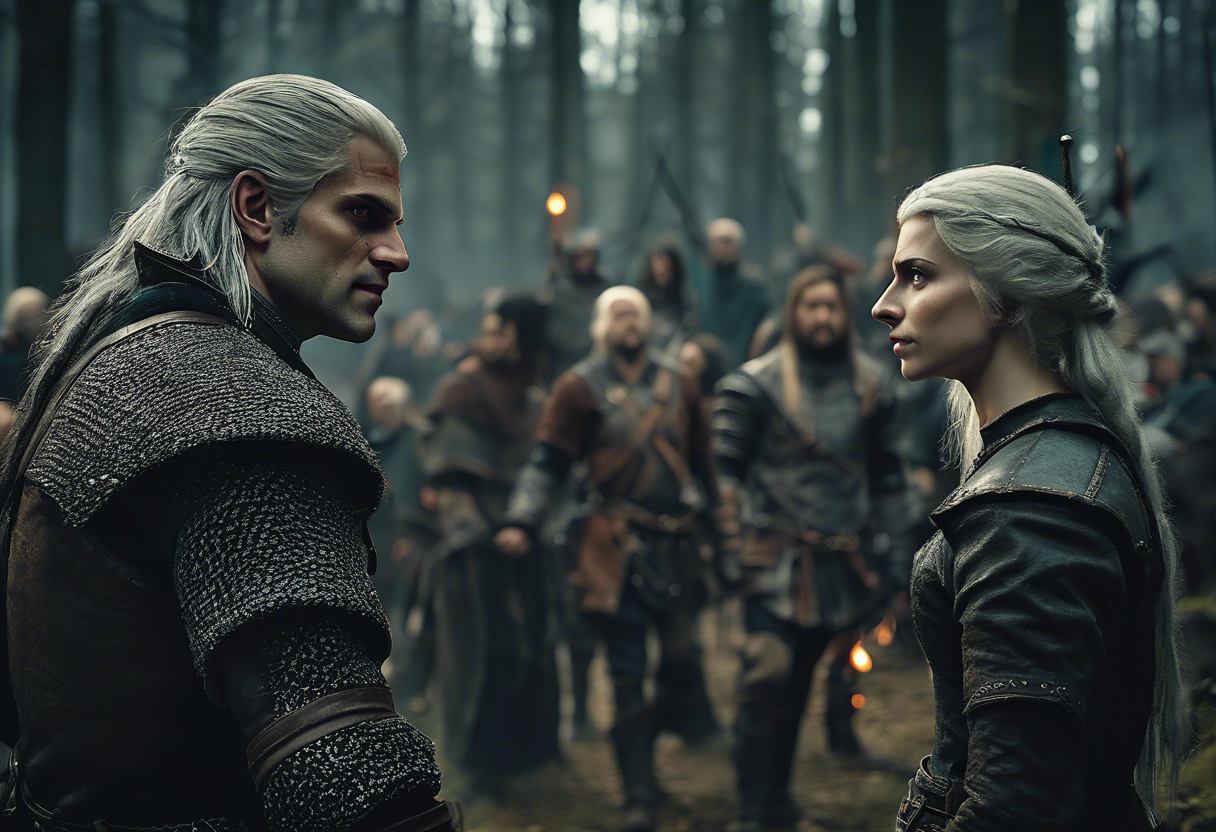Contents
Introduction
Season 3 of the Netflix series "The Witcher," subtitled "The Cost of Chaos," marks a significant milestone in the adaptation of Andrzej Sapkowski’s beloved fantasy novels and short stories. This season, released in 2023, is based on elements from "Time of Contempt," "Blood of Elves," and "Baptism of Fire"[4].
The production of Season 3 involved key creative figures such as showrunner Lauren Schmidt Hissrich, who has been instrumental in shaping the narrative and visual identity of the series. The direction and writing teams included several seasoned professionals, ensuring a cohesive and engaging storyline.
What sets Season 3 apart is its intricate plot, which delves deeper into the complexities of the characters and the world of the Continent. The season’s release was highly anticipated, given the popularity of the previous seasons and the rich source material from Sapkowski’s works.
Plot Summary
The plot of Season 3 is multifaceted and intense, with several key storylines that intersect and drive the narrative forward.
Geralt of Rivia, Yennefer of Vengerberg, and Ciri are central to the story, each facing their own challenges. Geralt, aided by Yennefer and Milva, a human archer, works to heal and subsequently embarks on a mission to rescue Ciri, who has been captured by Nilfgaardian bounty hunters and is now in the hands of the Emperor Emhyr var Emreis [1][2].
Meanwhile, Yennefer joins a group of surviving mages, including Triss, Margarita, Keira, and Sabrina, in an effort to rebuild their order and confront the treacherous Vilgefortz. This subplot highlights the internal conflicts within the mage community and the broader political landscape of the Continent.
Ciri’s journey is particularly poignant as she grapples with her powers and her identity. After being captured, she escapes and joins a group of young outlaws known as the Rats, adopting the name Falka. This period is marked by her first experience of killing a human, which profoundly affects her [1][2].
Other significant plot points include Prince Radovid’s ascension to the throne after his brother King Vizimir’s assassination, and Fringilla’s revelation to Francesca about the murder of her baby, which further complicates the alliances and rivalries among the characters [1].
The season also explores the theme of possession and the supernatural, particularly through the character of Voleth Meir (the Deathless Mother), who plays a crucial role in the climax of the season. Yennefer’s deal with this entity and its subsequent impact on Ciri and the witchers at Kaer Morhen are pivotal moments that shape the season’s conclusion [4][5].
Themes and Symbolism
Season 3 of "The Witcher" delves into several central themes that enrich the narrative and provide depth to the characters.
One of the primary themes is the cost of chaos and the consequences of war. The season vividly portrays the devastation and suffering caused by the ongoing conflict between Nilfgaard and the Northern kingdoms. This theme is symbolized through the characters’ personal struggles and the broader geopolitical landscape [1][2].
Another significant theme is the exploration of identity and belonging. Ciri’s journey, in particular, is a metaphor for self-discovery and the search for one’s place in the world. Her adoption of the name Falka and her involvement with the Rats reflect her attempt to find a new identity and escape her destiny [1][2].
The theme of power and its corrupting influence is also prevalent. Characters like Fringilla and Vilgefortz exemplify the dangers of unchecked power and the moral compromises that come with it. This theme is symbolized through their actions and the consequences they face [1][4].
The supernatural elements, such as the Deathless Mother, serve as a symbol for the uncontrollable forces that shape the world of the Continent. These elements add a layer of complexity to the narrative, highlighting the characters’ vulnerabilities and the existential threats they face [4][5].
Cultural Impact
Season 3 of "The Witcher" has had a significant cultural impact since its release. The series has been a topic of discussion among fans and critics alike, with many praising its faithful adaptation of Sapkowski’s works and its visual and narrative execution.
The season’s release was highly anticipated, and it quickly became a trending topic on social media platforms. The show’s influence on popular culture is evident in fan art, cosplay, and fan fiction, which continue to proliferate.
The series has also inspired various adaptations and references in other media. For example, the success of "The Witcher" has led to increased interest in fantasy genre productions, influencing the development of other TV shows and movies.
Critical Reception
The critical reception of Season 3 has been generally positive, with many critics praising the season’s complex storytelling, character development, and visual effects.
However, some critics have noted inconsistencies in pacing and the handling of certain plotlines. The decision to split the season into two parts has also been a subject of debate, with some viewers feeling that it disrupted the narrative flow [2][3].
Despite these criticisms, the season has been well-received by audiences, who have appreciated the deeper exploration of the characters and the world of the Continent. The performances of the cast, particularly Henry Cavill as Geralt of Rivia, have been widely praised.
Legacy
Season 3 of "The Witcher" continues to be relevant and influential in the world of fantasy television. It has set a high standard for adaptations of fantasy novels and has inspired a new generation of filmmakers and writers.
The season’s exploration of complex themes and its use of symbolic elements have made it a standout in the genre. The characters’ journeys and the world-building have enriched the narrative, making it a compelling watch for both new and existing fans of the series.
As the series moves forward, the foundation laid by Season 3 will be crucial in shaping the future storylines and character arcs. The enduring relevance of this season ensures that it will remain a significant part of cinematic history, influencing future productions and continuing to captivate audiences.
References
- https://www.thepopverse.com/witcher-season-3-ending-explained-volume-1-2-plot-netflix-henry-cavill-gerald-ciri
- https://screenrant.com/the-witcher-season-3-recap-ending-explained/
- https://winteriscoming.net/2023/07/27/the-witcher-season-3-review-explained/
- https://en.wikipedia.org/wiki/The_Witcher_(TV_series)
- https://collider.com/the-witcher-season-3-cast-plot-what-to-expect/

